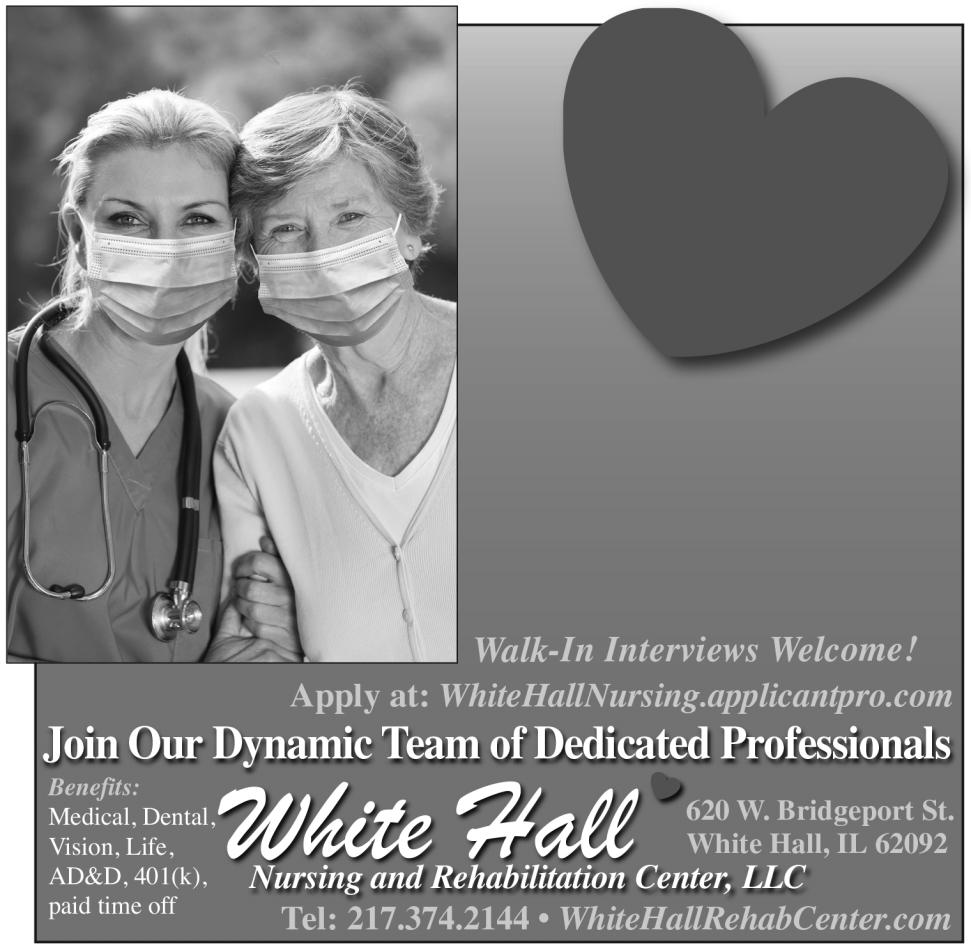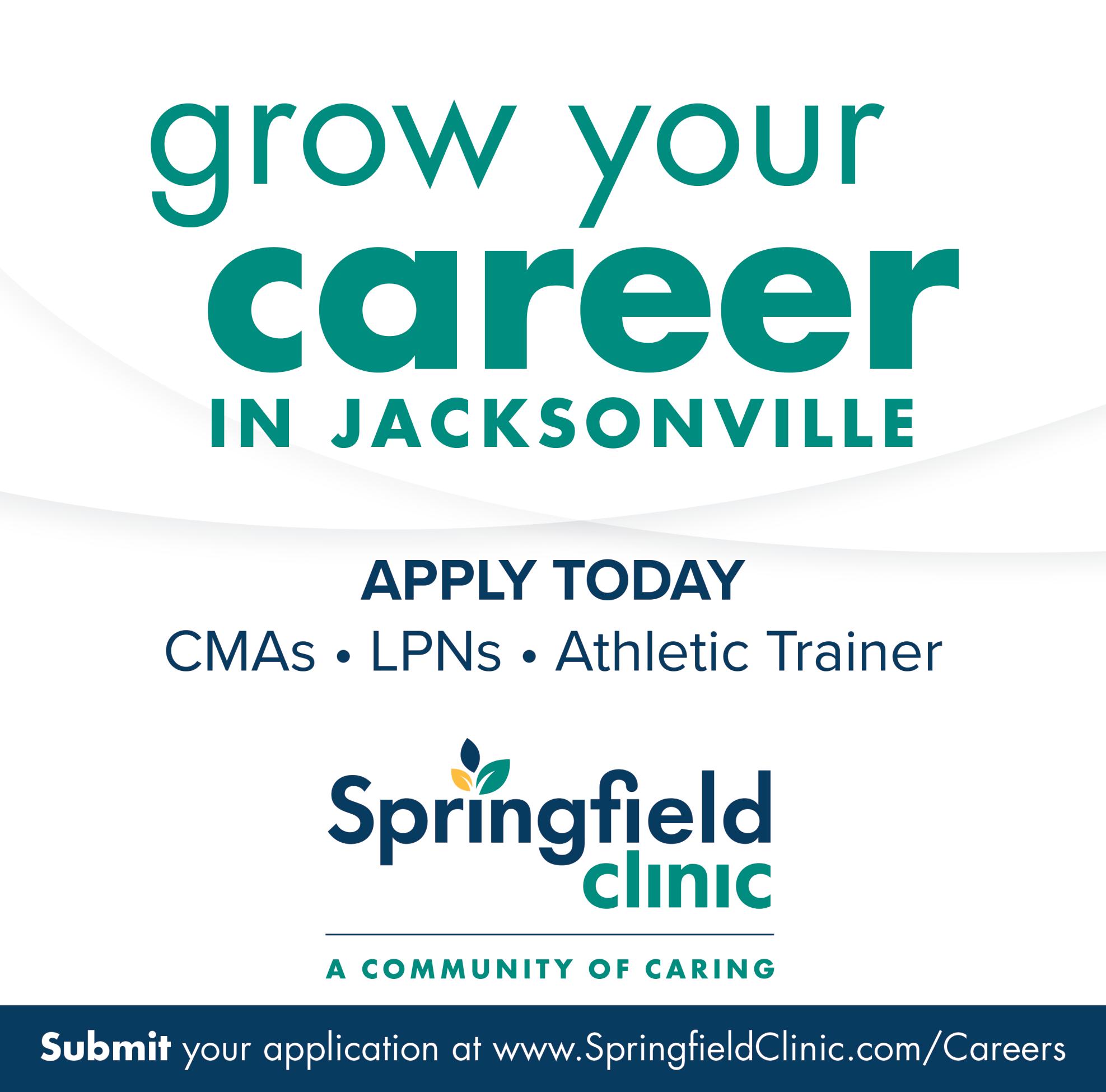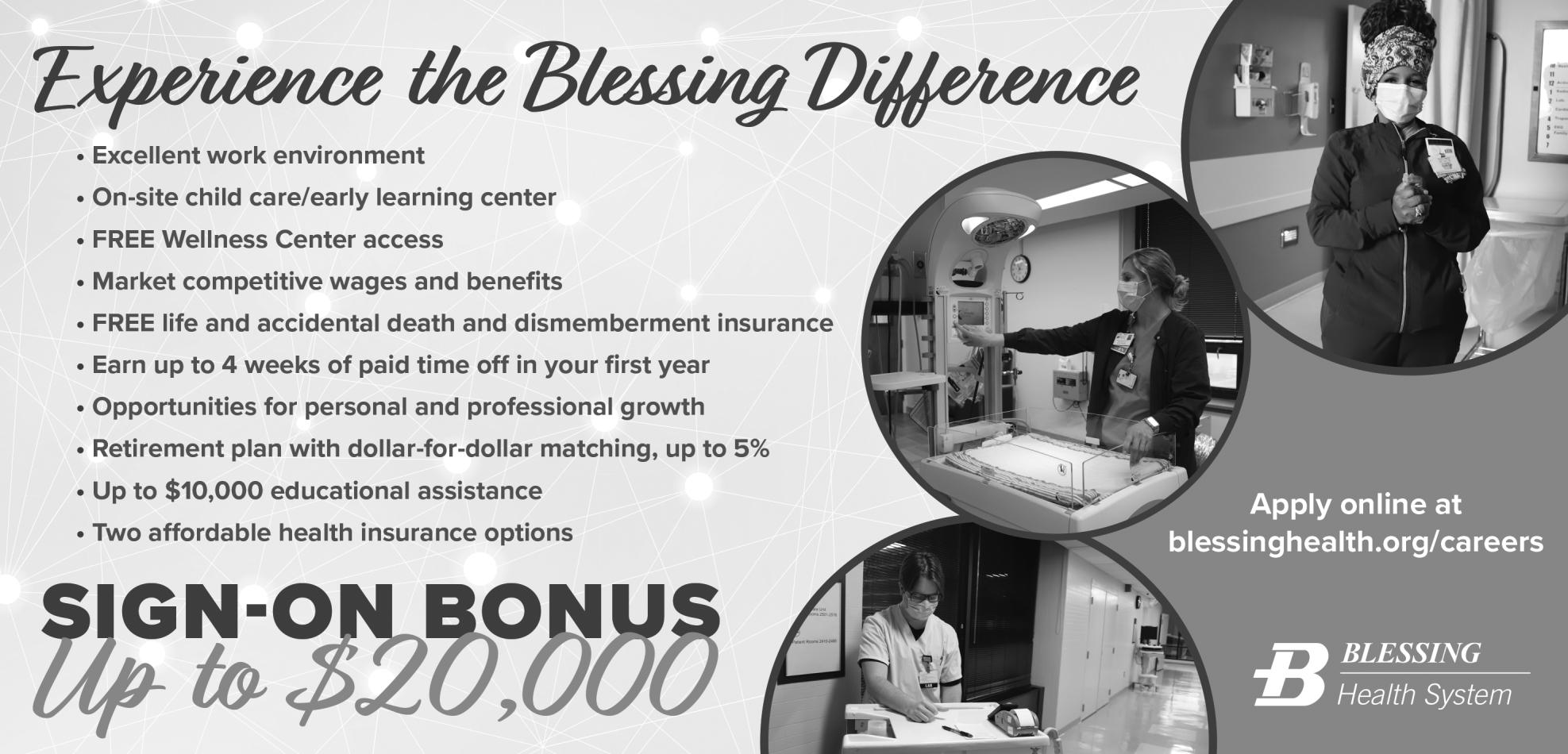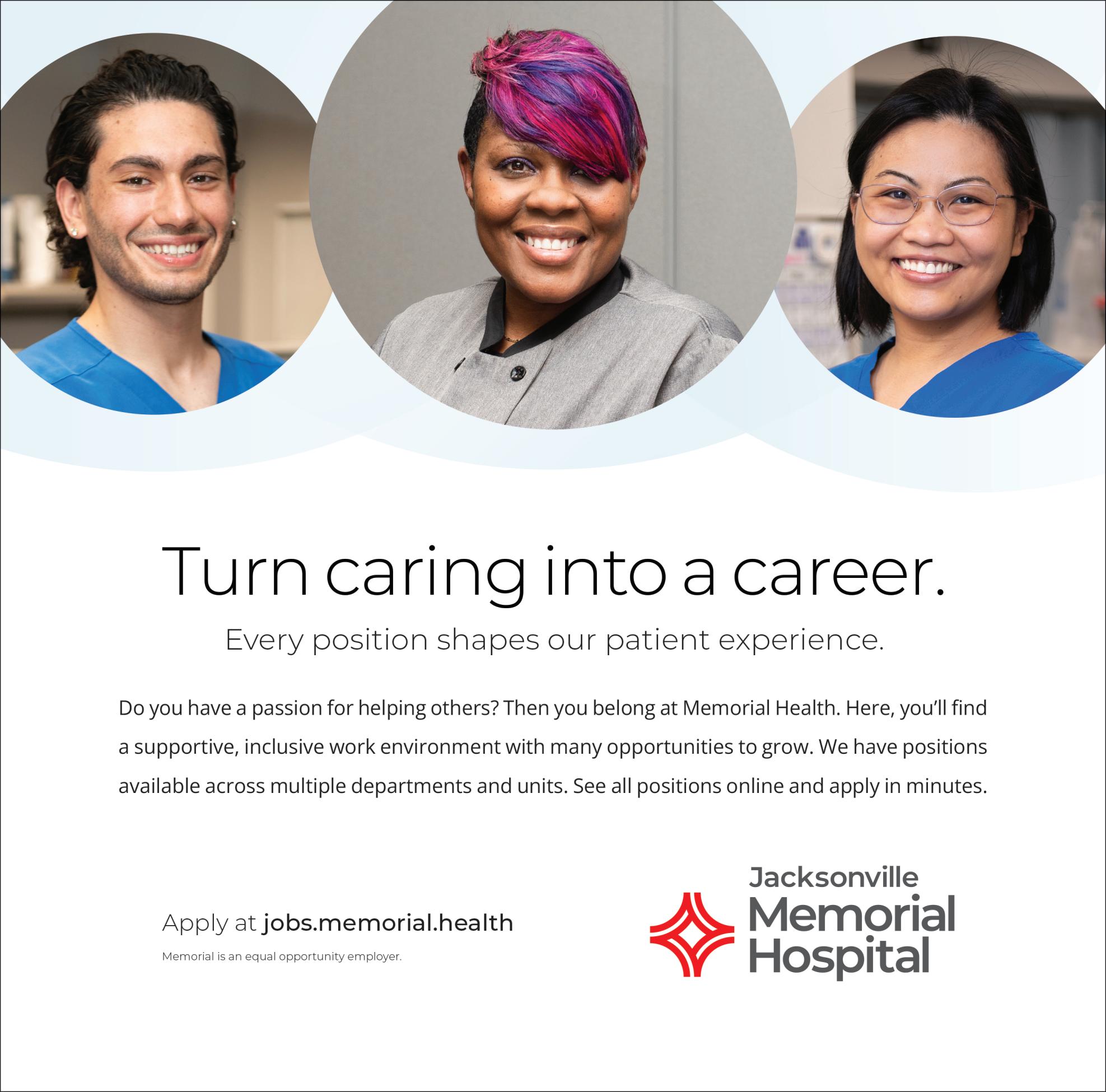RECRUITMENT GUIDE August 2022



Supplement to the






Continuing education can do more than improve your chances in landing the next job. It can make for a more rewarding life.
Some fields actually require continuing education in order to remain employed. For others, however, these courses, classes and projects provide a pathway to better job opportunities. Hiring managers take the full breadth of your resume into account, and additional educational pursuits




show a dedication to your field above and beyond every-day work obligations. When applying for some jobs, you may find that their pay bands are actually dictated by levels of education or other instructional achievements. If you’re not near a college that offers related coursework, be on the look out for seminars, training and certification courses, professional affiliations and workshoppresentation opportunities that can add depth to your resume.
There are a number of online
learning opportunities that may bolster your candidacy. They’re particularly useful if you’re overburdened at your current job, since schedules are often flexible. For instance, the edX site sponsors free courses from top schools like Harvard and MIT. Other online educational platforms include Coursera and Skillshare. Each provides an opportunity to close the skills gap some candidates may face, or help them acquire the knowledge base to start a new career. If you feel like you are up-to-date with so-called “hard” skills, consider taking online courses in “soft” ones like leadership, communication, adaptability, conflict resolution, decision making, creativity, motivation, time management and teamwork. Techniques learned there will lead to better outcomes outside of the office, too.
Going to faraway conferences is a great way to network for your next job, while learning about your field’s newest techniques. Like college courses, however, they can be very expensive. What
if you can’t afford to attend, either because of office responsibilities or sudden unemployment? That shouldn’t stop you from working on professional development. Read as broadly as you can, going beyond general news into focused reports on the work you do. Whether that means subscribing to a professional newsletter or scrolling through the Harvard Business Review, you’ll be gaining valuable new information that could very well help you land the next job. Join related virtual communities, and network with people through professional sites like LinkedIn. These discussions are bound to spark fresh ideas.
Getting started right out of school can be more challenging that graduating itself.

Applying for your first job after classwork ends is often a daunting proposition. Grads typically have more booklearned knowledge than real-world experience. But joining the workforce doesn’t have to become an impossible task. It just takes the right preparation.

You should arrive at this job search brimming with hard-won confidence. You’ve just achieved a major accomplishment in graduating from school. Be aware, however, that some openings draw numerous candidates from across a wide spectrum of skills and experience. You may not
immediately secure a job in your field, despite your academic credentials. So start early, while notifying any prospective employer of when you’re set to leave school. Utilize the
network of friends, family, professors and initial professional contacts you’ve already made to pinpoint job opportunities. They can provide a needed recommendation that can
open doors which might remain closed with a blind application.
Depending on the job, you may be expected to apply with a resume or curriculum vitae. Both provide a platform for your skills and experience, but they do it in different ways. A CV is typically submitted in research, educational or medical fields. This credentialbased document is more in depth than a resume, stretching into multiple pages. You’ll list education, experience, certifications and other professional affiliations. A resume, however, should be limited to one page while focusing more on your personal skills. Busy hiring managers typically have a stack of resumes to go through for any coveted job opening, so make sure yours is to the point.
Follow the correct application format for your field. Closely examine your documents to make sure there are no grammatical or spelling mistakes. Nothing will get your application passed over more quickly. First impressions matter, and employers will disregard you as a candidate if you’re too inattentive to submit a mistake-free application. If you’re worried that you might miss something, employ a standard spellcheck function or the Grammerly app to double check. Friends or family members who are careful readers can also be a huge benefit. Tailor everything to the job you’re applying for, focusing on strategic phrases or keywords that are part of the company mission. And don’t forget the cover letter.
During the pandemic, remote work became necessary for many who had never considered it before. While some corporations are mandating returns to the office, others are now more willing to hire people to work remotely, especially in a tight job market where qualified employees are scarce.
Data scientists at Ladders have been tracking remote work since the pandemic began, according to Forbes.com. They project that 25% of all professional jobs in North America will be remote by the end of 2022 and that number will increase in 2023.
Remote work is not for everyone or for every job, but some have found it creates a better work environment and they accomplish more.
The primary advantage to remote work that many adults cite is increased productivity. We Work Remotely cited a survey that 86% of adults said they feel most productive when working alone and that 65% of those surveyed thought a remote work schedule would increase their productivity.
Researchers for the Harvard
Business Review found that remote workers usually made more of an effort to have meaningful conversations with each other rather than just engage in small talk.

Other advantages to remote work are:
• You don’t have to relocate.
• You save money and time on commutes.
• You save money on the costs of working, from lunches to parking.
• You can create your own work environment and control the noise levels.
• You can engage in more physical activity at home.
• You are more
independent.
• You’ll become a communications expert.
• You lose the water cooler moments that can inspire creativity when your co-workers give you ideas during impromptu discussions.
• Your work may not be seen as often, leading employers to pass you over for promotions or plumb job assignments.
• You may not have full access to the technological or other resources of the workplace.
Once you land the remote job, make sure you’ve created an environment that works for you. Will you be productive in your pajamas or do you need to create a separate office in your home where you won’t be disturbed?
Monster.com gives the following tips for working from home:
CONS OF REMOTE WORK
However, even with all the advantages, it isn’t all roses. Those who have been working from home share some warnings about the downsides and point out that it isn’t for everyone.
Some disadvantages to remote work are:
• It can be lonely.
• There is a tendency to overwork and get burned out. The lines between work and family life blur and the workday can be never-ending.
• Communicate often and create as many opportunities for face time as you can.
• Stay professional. Don’t have your work calls interrupted by barking dogs, screaming kids or ringing doorbells.
• Be responsive. Return calls and reply to emails quickly so no one thinks you are slacking. Be available for meetings and collaborations.
• Set specific times each day or week to check in with your colleagues.


Among the Quincy Medical Group (QMG) family, we have several employees who are also family outside of work. QMG Nurses Leah Ley and Maty Waterkotte are just one sibling pair at QMG. They work side-by-side at the new QMG Surgery Center, which opened in 2021. Below is a conversation with the siblings on their jour ney to becoming nurses and how they both wound up together at QMG.
Tell us about your roles at QMG and how long you’ve been here.
Leah: I’ve been a nurse at QMG for six years. I worked in medical oncology for five years and then moved to the Surgery Center as a pre/post nurse last April.
Maty: As a Quincy native, I’ve always received my healthcare at QMG. I moved back to Quincy from Arizona in 2019 and started in the nurse specialty float pool. I transitioned to the Ambulatory Care Center and now am working as a pre/post nurse at the QMG Surgery Center
What do you each love most about being a nurse?
Leah: The people are what I love most about nursing. Caring for them and interacting with them on a daily basis is what brings me so much joy and fulfillment in my career.
Maty: My favorite part about nursing is getting to love on people during their most personal and vulnerable times. I love getting to know each patient and making them feel as comfortable as they can while I take care of them.
What is it like working alongside your sister?
Leah: Patients always find great joy in seeing sisters when Maty is working pre-op and she tells them that her sister will be recovering them in PACU. It’s always a nice conversation piece with patients and ¬they always find it pretty cool that we work together
Maty: Working with my sister is such a joy. Leah is a wonderful and intelligent nurse with such a servant heart. My favorite part about working with her is getting a little piece of home at work every day.

What advice do you have for others considering a career in nursing?
Leah: Nursing is such a rewarding profession so you will almost always be able to end your work day with a sense of fulfillment, knowing that you may have changed someone’s life for the better in some way, shape, or for m.
Maty: Nursing is such a selfless job. I have to remind myself several times a day that I have no idea what people are dealing with when they leave my care; the only thing I can do for them is kind and treat them like I’d treat my momma. A career in nursing is a beautiful thing because there are so many different avenues. You will never stop lear ning.

Career fairs are a timehonored way
of bringing many employers and job seekers together at once.
Whether sponsored by colleges, government job agencies or professional organizations, career fairs are an opportunity to meet with employers, learn about job openings and companies, schedule interviews and maybe even go home with a job.

The first thing you need to do is decide what you want from the fair. Are you merely collecting information? Are you hoping to get a job while there? Are you planning to market yourself?
Dress for the job you want. If you’re going to a career fair that is hiring for a manufacturing job, it may be acceptable to wear clean jeans and a shirt. For a professional job, a business suit is more appropriate. It is always better to be overdressed than underdressed. While a career fair for artistic/design and creative jobs might allow for more leeway, generally you want to dress conservatively.
Get a list of who will be at the career fair and research them. This helps you plan who you want to see. This also lets you spend your limited time with each recruiter talking about your qualifications rather than having to learn their basic information.
Prepare questions to ask about a job opening — but avoid such things as pay rate or benefits. What are some good questions? Ask things like the average tenure of employees at the organization, what sort of attributes are essential to success in the organization, or what accomplishments are valued and
rewarded in the organization.
Prepare your elevator speech or commercial. Introduce yourself in 30 seconds and communicate what you are looking for and why you are interested in a job provider. Practice before you go. The ASHA Career Portal recommends including who you are, what your passion is, what
your purpose is and the skills you have to achieve it, and what your something “extra” is.
Print several copies of the strongest version you have of your resume, one designed to appeal to the type of companies that will be at the career fair.
Other things to take include a pen, notepad and breath mints. Don’t chew gum. Carry a portfolio or a briefcase.
Always behave professionally— whether you are in the restroom, the elevator or standing in front of a booth. You never know who is going to see or hear you.
Project confidence. Use a strong handshake, make eye contact and speak in a clear and natural voice. Be aware of your body language and project the image of a professional.
Send thank-you letters to those employers that you have a high amount of interest in, especially if you gave them a resume. Identify the jobs you are interested in and if you didn’t give them a resume at the fair, follow up with a cover letter and resume, mentioning that you met a representative.
Update your resume with anything you learned that better reflects your qualifications.
Frustrated with your current job? Become your own boss.
Freelancing offers a number of perks that everyday employment can’t, beginning with the opportunity to make your own schedule. Becoming an on-demand worker also allows you to dabble in a variety of things, rather than focusing in on one particular job or career path.

The number of people working from home soared as pandemic-related
restrictions were put in place. That gave many people a glimpse of the freedom and flexibility that on-demand workers have long enjoyed. Freelancers remain in high demand. They quickly introduce specialized skills to a workforce, and can be hired faster since employers avoid the lengthy interview process involved with hiring full-time personnel. At the same time, freelancers gain valuable experience in a variety of work situations. On-demand workers enjoy broadly expanded networking opportunities, while working on a much
more personalized schedule. They don’t get stuck in a work-related rut either.
On-demand work requires an online presence, since you won’t be taking part in a traditional interview process or typically even work at a job site. You’ll need to provide a comprehensive landing spot for prospective employers to learn more about your job history, special skills,and work product. Your portfolio can be posted on professional job sites like LinkedIn, or consider launching a
personal site. Accept that you might have to take low-paying gigs to begin with, since you’re just getting started. Follow prospective companies on social media, in order to learn more about the kind of employee they’re interested in. Consider tailoring some of your early pursuits toward the kind of jobs that they’re already offering.
Make an honest assessment of your particular experience
and skillset before applying for a freelance gig. Casting a net that’s too wide will only lead to unhappy clients. Hiring managers who are looking for freelance help typically need to fill the jobs quickly, so your pitch needs to be targeted, short and sweet. Make it easy for them to skim through your query to find key points, and provide a link to your online portfolio to find out more. And don’t forget to craft every pitch for each unique opportunity. Generic queries will often be ignored.
Employers no longer rely only on resumes, cover letters and background checks. Today, most hiring managers take to the internet and google their potential hires.
The site “We Work Remotely” reports that 80% of hiring managers consider it important for a candidate to have a personal website and 47% of companies say they won’t hire someone if they can’t find them online.
Your personal brand, according to Dr. Sean Gresh, a faculty member at Northeastern University, is your story. It is who you are, what you stand for, the values you embrace and the way you express those values, he said. It helps you to “communicate a unique identity and clear value to potential employers.”
So what are the dos and don’ts of creating your online brand?
According to a Career Builder survey in 2018, 57% of hiring managers who search for information about candidates online have found content that caused them not to hire a person. CareerBuilder listed both what led employers not to hire a candidate and what made them more likely to hire a candidate.
What do you want to avoid? These things made hiring managers turn a person away, according to the survey:
• Candidate posted inappropriate or provocative photographs, videos or information.
• Candidate posted information about them drinking or using drugs.
• Candidate made discriminatory comments related to race, gender, religion, etc.
• Candidate was linked to criminal behavior.
• Candidate lied about qualifications.
• Candidate had poor communication skills.
• Candidate bad-mouthed their previous company or fellow employee.
• Candidate’s screen name was unprofessional.
• Candidate shared confidential information from previous employers.
• Candidate lied about an absence.
• Candidate posted too frequently.
That said, there were several factors that caused hiring managers to look more favorably on a candidate. Many are under your control.
According to CareerBuilder’s survey:
• Background information supported a candidate’s professional qualifications.
• Candidate was creative.
• Candidate’s site conveyed a professional image.
• Candidate was wellrounded with a wide range of interests.
• Employer was able to get a good feel for the candidate’s personality.
• Candidate displayed great communication skills.
• Candidate received awards and accolades.
• Others posted great references about candidates.
• Candidate interacted with the company’s social media accounts.
• Candidate posted compelling video or other content.
• Candidate had a large number of followers or subscribers.
for yourself, which means knowing what it is and making a plan.
Capitol One suggests the following steps to create your personal brand:
1. Define who you are.
2. Understand your audience.
3. Decide what you want to be known for.
4. Prepare your elevator pitch.
Let those guide how you act online, what you put out there and how you promote yourself. Decide the best places to pitch yourself.
Columbia University’s Career Center recommends focusing on a few professional social networks and not saturating the market.
for more than just a job?
Let today be the start of something new. Pathway Services Unlimited, Inc. is looking for compassionate people to assist individuals who have developmental disabilities. Pathway has 10 group homes in the Jacksonville communi ty. Find career opportunities assisting individuals with their every day needs, in their homes. Become part of a TEAM that does MORE than just a job.

Take control of creating a strong personal brand
Once you have established your brand, maintain it. Even after you get the job, managers may be monitoring you and making decisions about your future promotions.
Residential Aides—Full-time, Part-time, and Substitutes (As Needed) NO EXPERIENCE NECESSARY! Must be able to work evenings and weekends. Must have high school diploma or GED, and an insurable driving record. Health Care Worker Registry Background Check required. QIDP—Qualified Intellectual Disabilities Professional Bachelor’s Degree Required. At least 1 year of experience with individuals with developmental disabilities. An attractive benefit package, including 11 paid holidays, is offered after completion of a probationary period. Visit our website, www.pathwayservices.org, and click on the careers tab for more details regarding qualifications, a complete job description, benefit listing, and to apply. You may also apply in person at our main office located at 1905 W. Morton Ave, Jacksonville Monday through Friday between 8am and 4pm. For more information, please call us at (217) 479-2300. EOE
Cover letters let you communicate your personality, creativity and individuality to a hiring manager. It allows you to connect with the person hiring and demonstrate whether you are a good fit.

It can be a daunting task. You don’t want a cookiecutter letter that you cut and paste for every job. This is your opportunity to shine and to show that you’ve researched a job.
The Harvard Business Review quotes the author of “Great on the Job,” Jodi Glickman, who stresses the importance of always submitting a cover letter, “It’s your best chance of getting the attention of the HR person or hiring manager and an important opportunity to distinguish yourself from everyone else.”
Research is the first step. Read the job description several times. Visit the company’s website. Head to social media and see what company executives and employees post on their Twitter feeds, their Instagram pages, their Linkedin profiles.
Pay attention to the tone so you can match it in your cover letter. When possible, use the language that they use. Find the name of the hiring manager so your cover letter can address them by name.
The Harvard Business Review recommends reaching out to a hiring
manager via email or phone to ask smart questions about the job—and then mentioning in the cover letter that you spoke.
Keep your cover letter to a single page — it’s unlikely a hiring manager will read more — so plan carefully what to include.
A survey from the Society for Human Resources said the top three things that organizations want to read in a cover letter are the ways a candidate’s past experience meets the job’s requirements, how their skills are a good match for the job and why the candidate wants to work at the organization and in the job they are applying for.
Give examples of how you can meet the challenges that the company is facing. Provide evidence of what

sets you apart and ways you have demonstrated the skills and abilities they are looking for. Anecdotes help you tell your story.
SET THE TONE
Start strong. Your first sentence shouldn’t state the obvious such as “I’m applying for this job.” Grab your reader’s attention with a statement of who you are.
Be enthusiastic. Convince the hiring manager that you really want the job. While you need to be professional — avoid humor or platitudes — you should show personality. Be authentic and truthful. Don’t sound desperate or engage in flattery.
Include a call to action. Be polite, open-ended and give them a reason to contact you. Consider ending with a question as it can inspire a natural reaction on the part of the hiring manager to answer it.
Make sure your cover letter is free of errors or typos. Ask a friend or trusted mentor to read the letter. Set it aside for a day and then read it carefully several times to make sure you have said what you wanted to say the way you want to say it.
